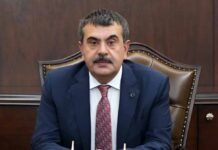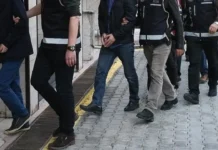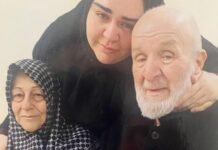Twenty-four female students who were briefly detained due to their alleged links to the Gülen movement were questioned regarding their phone contacts and travel history abroad as well as their possession of passports and driver’s licenses, Turkish Minute reported, citing the Kronos news website.
The students were detained in İstanbul and other cities on June 9 based on the statements of a student identified by the initials B.Ç.
According to Kronos, the police questioned the detainees regarding their possession of passports and driver’s licenses, their legal or illegal travel history abroad, the reasons behind their travels and their participation in any domestic or international trips organized by the Gülen movement.
One of the students, identified only by the initials H.D., was reportedly asked about the identity of a person saved on her phone as “Peri.” H.D. stated that Peri was the name of a friend’s deceased cat.
Kronos said another detainee, identified as Z.D., said she smoked in order to prove that she wasn’t a member of the Gülen movement.
The students were released after giving statements to the police.
Turkish authorities last week issued detention warrants for a total of 92 people due to alleged links to the movement as part of investigations launched by the chief public prosecutor’s offices in İstanbul, İzmir, Ankara and Konya provinces. The suspects included lawyers, doctors, nurses, teachers, businessmen, active duty and dismissed military officers and former military cadets.
President Recep Tayyip Erdoğan has been targeting followers of the Gülen movement, inspired by Turkish Muslim cleric Fethullah Gülen, since the corruption investigations of December 17-25, 2013, which implicated then-prime minister Erdoğan, his family members and his inner circle.
Dismissing the investigations as a Gülenist coup and conspiracy against his government, Erdoğan designated the movement as a terrorist organization and began to target its members. He intensified the crackdown on the movement following an abortive putsch that he accused Gülen of masterminding. Gülen and the movement strongly deny involvement in the coup attempt or any terrorist activity.
Following the coup attempt, the Turkish government declared a state of emergency and carried out a massive purge of state institutions under the pretext of an anti-coup fight. More than 130,000 public servants, including 4,156 judges and prosecutors, as well as 24,706 members of the armed forces, were summarily removed from their jobs for alleged membership in or relationships with “terrorist organizations” by emergency decree-laws subject to neither judicial nor parliamentary scrutiny.
In addition to the thousands who were jailed, scores of other Gülen movement followers had to flee Turkey to avoid the government crackdown.















